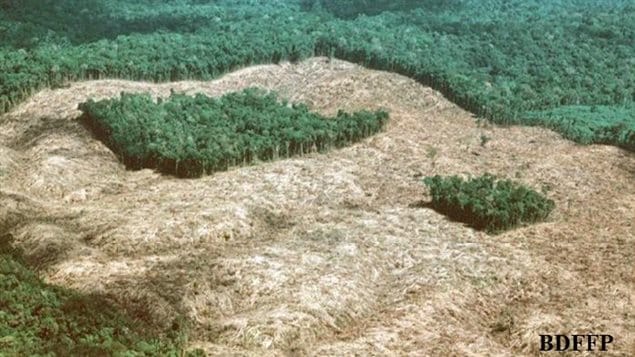In what they call a shocking result, scientists have found that 70 per cent of the world’s forests are within one kilometre of a town, road or other disturbance, and that is putting biodiversity at great risk.
Effects ‘truly, truly worrying’
“I was shocked by how fragmented the world’s forests are and I was also shocked by how lasting the human impacts are on fragmented ecosystems,” says Andrew Gonzalez, a biology professor at McGill University and one member of the international team of researchers. “The effects on biodiversity are truly, truly worrying.”
ListenForest fragmentation degrades ecosystems, says Gonzalez. This analysis of the world’ largest and longest-running fragmentation experiments suggests that a fragmented forest loses roughly 50 per cent of its biodiversity after 10 years and the ecosystems are degraded by 30 to 50 per cent.
‘Our well-being depends on biological diversity’
“There’s a growing amount of research that shows that our own well-being—our health and our mental well-being—depends on biological diversity. Our climate requires trees to store carbon, and we get many benefits from nature, many ecosystem services…that we are losing by degrading forests and by fragmenting forests in the way that we’ve seen,” says Gonzalez. Among the great benefits he mentions is the cycling of water.

Fragmentation and climate change ‘a lethal cocktail’
The scientists created a map which shows where and how much forests have been affected. And forests are under other pressure, he adds. “When you get climate change and forest fragmentation at the same time, that’s quite a lethal cocktail.” Given the added pressure of climate change and pollution, the scientists say action is urgently needed to mitigate the effects on forests and biodiversity.
They suggest that patches of forest remain connected by undisturbed corridors between them. In some cases, trees could be planted. A coalition of environmental groups has already urged the Canadian government to ensure that at least 50 per cent of Canada’s vast boreal forest be protected.
The fragmentation study was published in the journal Science Advances and is available online.







For reasons beyond our control, and for an undetermined period of time, our comment section is now closed. However, our social networks remain open to your contributions.